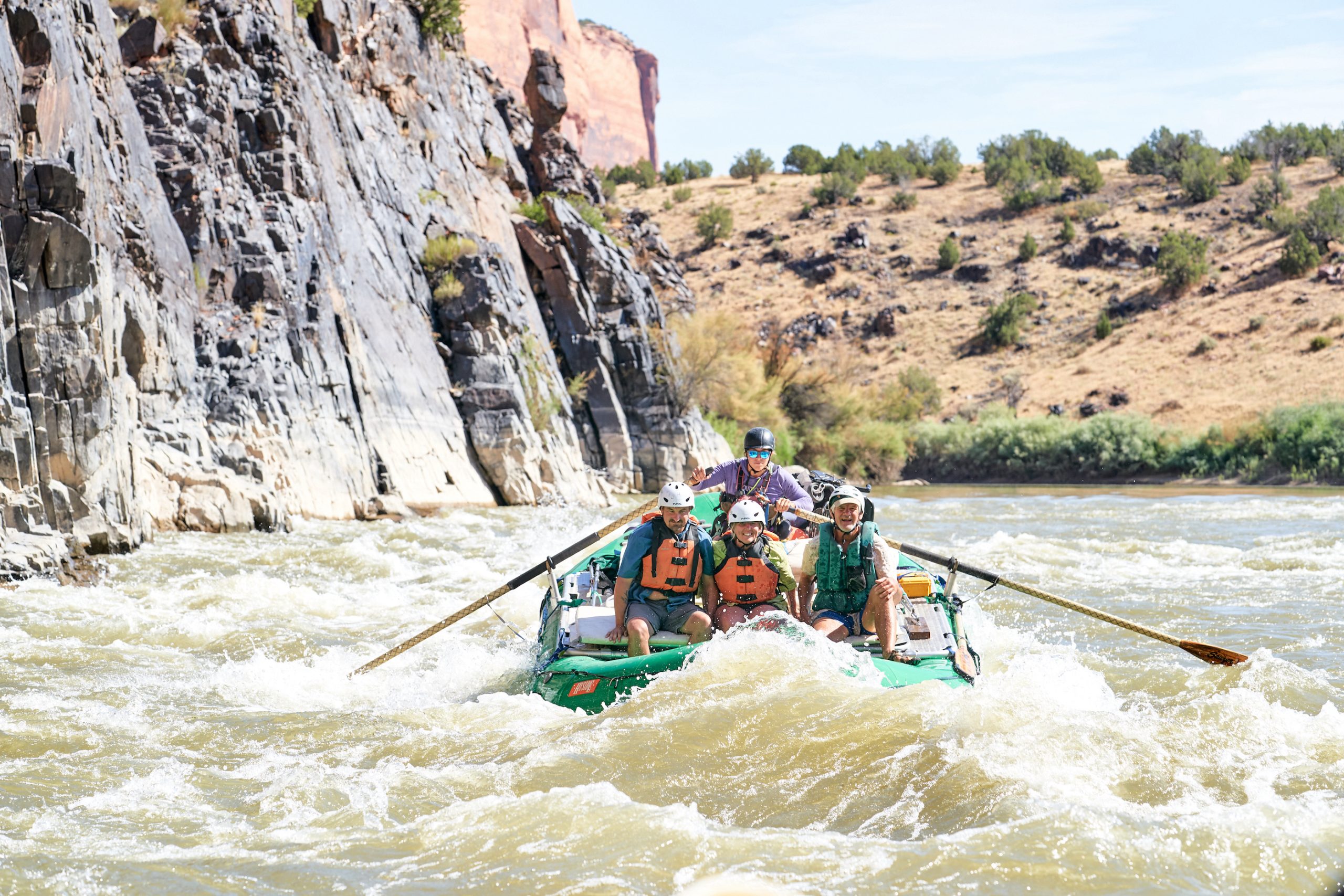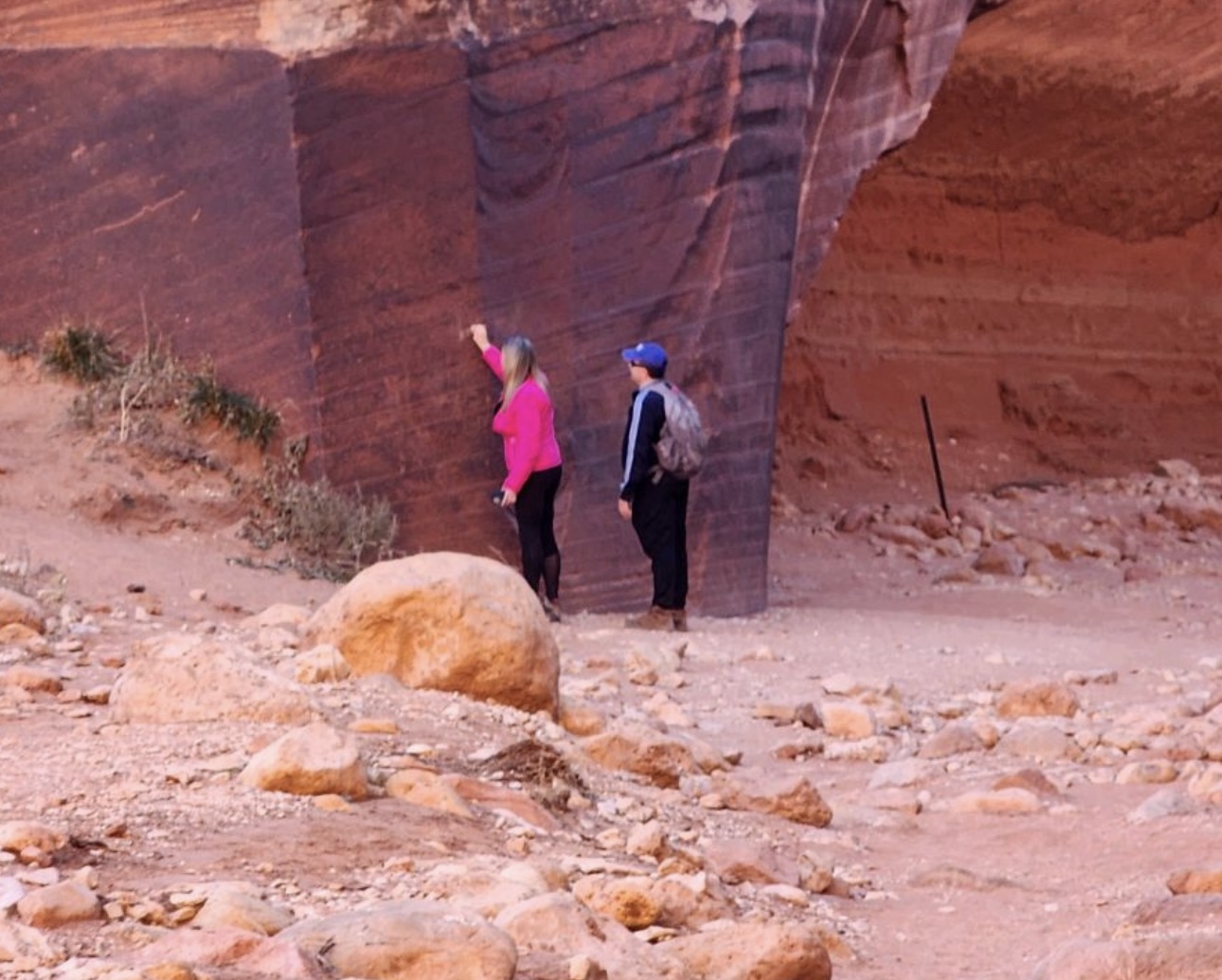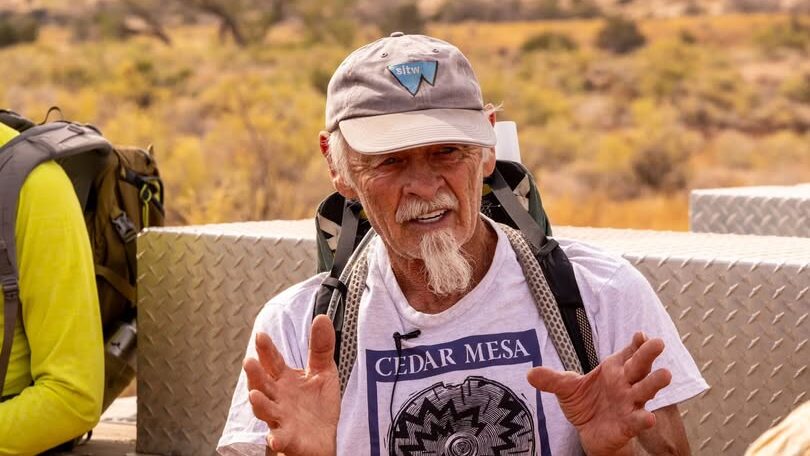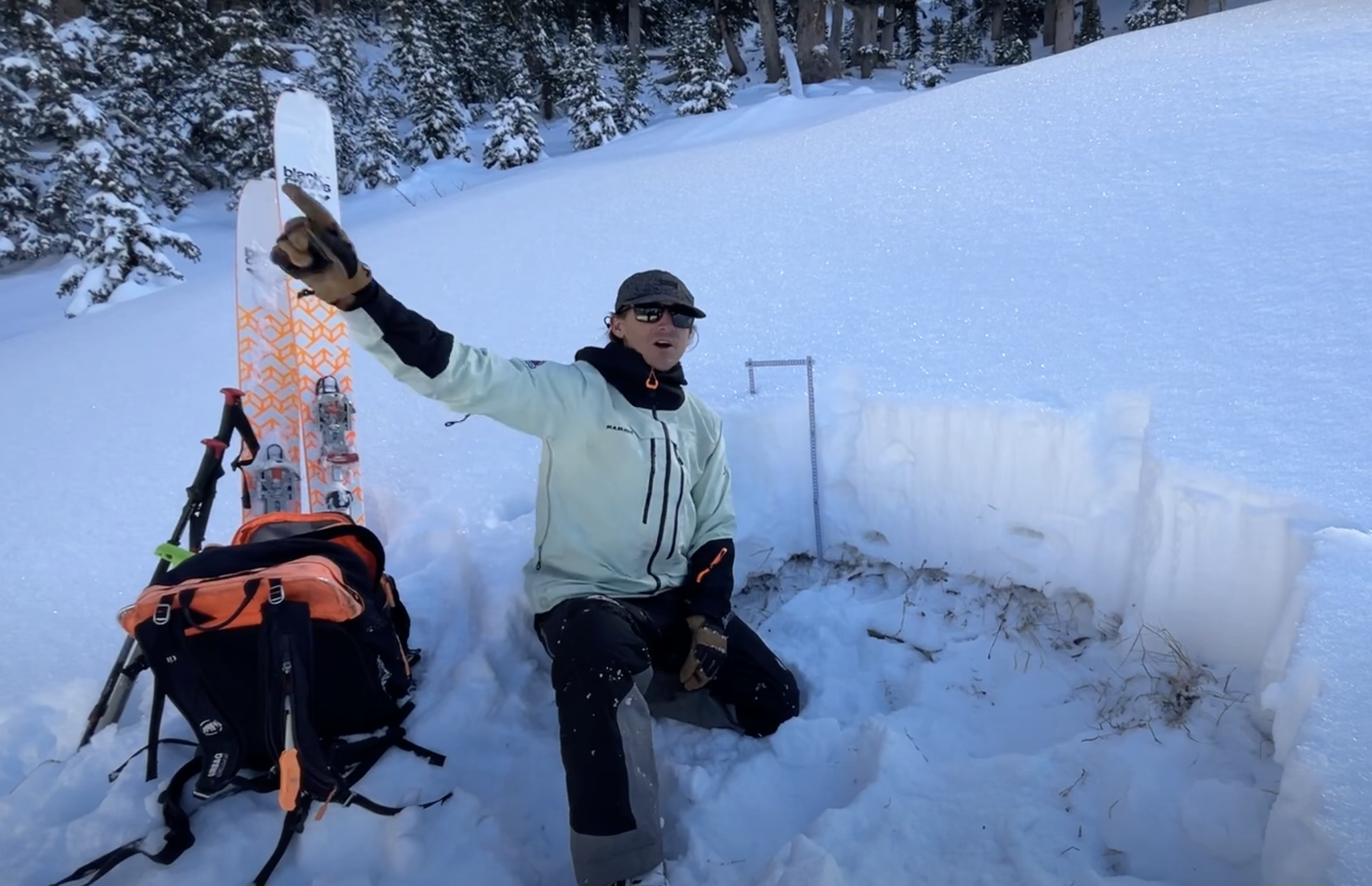Some information may be outdated.
Thousands of people come to Moab because of its reputation as a rafting destination. It’s home to numerous rafting companies: Navtec Expeditions, Red River Adventures, Western River Expeditions, Adrift Adventures; and rapids: Onion Creek Rapid, Rocky Rapid, Lester’s Rock, with access to the expert-level Cataract Canyon and Lake Powell.
One organization with an office in Moab, the National Ability Center, is trying to make that experience accessible for everyone.
The National Ability Center is an organization based out of Park City whose mission statement is to “empower individuals of all abilities by building self-esteem, confidence, and lifetime skills through sport, recreation, and educational programs.” It offers guided experiences such as rafting, mountain biking, climbing, cycling, skiing, and snowshoeing.
Longtime Moabites will know the NAC Moab office as Splore Outdoor Adventures, which has run adaptive rafting trips since the 1970s. NAC merged with Splore in 2017, allowing the organization to expand its offerings.
Karen Locke, NAC’s senior southern Utah adventure program manager, runs the Moab office, which specializes in rafting trips. The organization uses adaptive chairs and rafts that provide stability for people who wouldn’t normally be able to board or ride a raft.
The growth she’s seen in the time she’s been working there has been “incredible,” she said.
“We’ve been able to take more folks rafting, so our bookings have definitely increased,” she said. “And we’ve been able to obtain more permits.”
The organization runs trips for people of all abilities on the Colorado and Green Rivers: through the Fisher Towers (the Daily), Ruby/Horsethief, Westwater Canyon, and Labyrinth Canyon.
In 2018, the organization received its first permit for Desolation Canyon, a stretch of the Green River north of Moab. Trips through Desolation Canyon take four to six days and take rafters over 50 class II to III rapids.
“At the end of most of our trips, people are crying and hugging and it’s just really sweet,” Locke said. “People are just thankful that we allow them the space to try something new.”
NAC plans to grow in Moab, Locke said, and purchased the old Moab Elks Lodge property to give the organization room to grow in the future.
The center’s rafting trips bring more “diversity and openness” to rafting culture, especially in Moab, Locke said—before working for NAC, she was a commercial raft guide for years, and sees the difference between those trips and NAC’s.
“It’s incredible to me, the care and attention that our staff gives to make every trip unique and special to the people that are coming on that specific trip,” she said. NAC’s Moab trips are much smaller than the typical rafting trip: guides will take three people on a single raft, as opposed to six or seven on commercial trips.
“The other thing I’m big on is being a resource for other rafting companies,” Locke said, “and teaching ability awareness to other rafting companies, or other outdoor companies in general.”
In Moab, the NAC office recently worked with the Canyonlands Field Institute to update its Professor Valley Field Camp, adding accessibility measures like smoother paths. NAC staff also briefed CFI staff on how to work with clients with different abilities—“We talked about what people with different abilities might want to try out on their own, versus what they might need assistive devices for,” Locke said.
“I would love to expand that in the years to come, and do that with a number of other companies,” she said.
The Moab office usually runs 50 trips each season, from mid-May to mid-September, completing a little over 80 days on the river. That number was diminished in 2020 and 2021 due to complications with COVID, but Locke is looking forward to a more busy season this year, she said.
“I do have some hopes to eventually expand our season,” she said. “But for where we’re at right now, coming off of COVID and with the struggles of hiring, we’re doing pretty good.”
Appreciate the coverage? Help keep local news alive.
Chip in to support the Moab Sun News.





